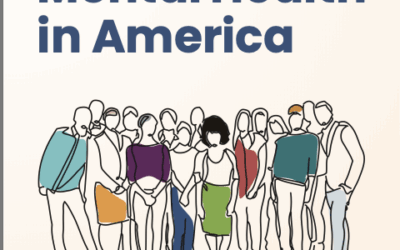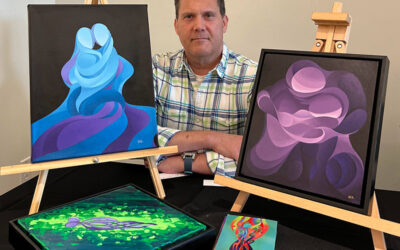Last semester at the University of Richmond, Jepson School of Leadership Studies, I researched how individuals and society prejudice addiction to drugs or alcohol. As I continue that project with my professor and my internship with MHAV, I wanted to take this next blog post to highlight the impacts COVID-19 has had on Americans who struggle with substance use disorder (SUD). One of the key focuses of MHAV is to support individuals in recovery from addiction, and the global pandemic has certainly affected this population in a distinct way.
Albeit addiction and substance use disorders do not discriminate across demographic groups, in this piece I will focus on the young adult population. Youth on college campuses are at high risk for substance abuse, due to a variety of factors, such as:
- Joining Greek organizations
- Being on a college athletic team
- Coinciding mental health concerns
- Living on-campus in a dorm environment
- Extreme rates of stress
According to Addiction Center, around 31% of college students report symptoms of alcohol abuse, and about 110,000 students between the ages of 18-24 are arrested every year for an alcohol-related violation. As the data show, drug abuse and addiction have impacted college students to a high extent, due to a combination of the risk factors I listed above as well as individual traits. There are differences between drug abuse and addiction in college students as well, that you can read more about here. Regardless of the substance or the rate at which the person uses it, however, drug use in college students is especially dangerous because it is often downplayed as “part of the college experience” or that they will “grow out of it” at some point.
When the pandemic struck the United States, college students were sent home from their campuses. That posed a variety of risks for individuals with unsafe home conditions, financial strains posed by COVID-19, and immunocompromised students or those with high-risk families. For young individuals who were forced off their college campuses and who may be in recovery or in need of recovery resources, the increased social isolation and lack of available support during the pandemic may heighten the risk of relapse or additional mental health conditions. Many college students seek support from their university’s counseling services or support groups, which very well may have come to a halt due to COVID-19. It is clear that there are a variety of challenges that many individuals face when returning home due to the pandemic, but those with a substance use disorder may face additional implications for their health, as well.
Students sent home to families who are unaware of their substance use condition may feel even deeper isolation. Due to fear of telling their home support systems or lack of knowledge of the resources available, the COVID-19 lockdown could exacerbate the rates of drug or alcohol relapse. Although many inpatient and telehealth services have remained available, the stigma associated with seeking support as well as the perception that COVID-19 shut services down may put people at risk.
As COVID-19 mainly affects the respiratory system, individuals who abuse drugs that weaken their lungs are considered a vulnerable population during the pandemic. Those who use crack cocaine, smoke cigarettes, or abuse methamphetamines may face health implications from the virus because of their weakened lungs. As stated in an AddictionCenter article by Michael Muldoon:
“People worrying that they won’t be able to get the substance they’re dependent on may try to stockpile drugs for the upcoming isolation. A larger than normal amount of drugs predisposes someone to using more than they intended. Overdoses and other immediate health risks increase in likelihood the more drugs someone who’s dependent has on hand. The relationship COVID-19 and illicit drugs share could potentially cost people their lives.”
Additionally, if you or someone you know is using drugs amidst the coronavirus outbreak, it’s useful to know harm reduction tips to reduce the risk of contracting or spreading the virus. Since much is still unknown about COVID-19, it’s important to keep those who do use drugs safe. I encourage you to read and/or share these harm reduction steps and techniques from the Health Service Executive.
As I described above and in the AddictionCenter article I cited, unique challenges come with COVID-19 and people who use drugs. The additional challenges of living with unsupportive families, feeling socially isolated, taking classes from home, or other situations might present additional hurdles for college students. As states begin reopening and colleges remain in session in the fall, the potential spread of the virus could have ramifications on this vulnerable population. If you are in recovery or hoping to find support services for your drug and/or alcohol use in Virginia and nationally, I have compiled a list below of direct care services, free hotlines, and support groups. There are telehealth, inpatient, and outpatient options available, and the road to recovery is possible. I believe in you and MHAV is here to support you through our services and support for young and older people in recovery.
As friends and family members of a loved one who is addicted to drugs or alcohol, it can be a challenging situation if you are unsure of how to support the person. I recommend reading this article from California Highlands Addiction Treatment, “6 Great Ways to Show Recovery Support for An Addict.” I have also listed relevant resources and support systems for those with loved ones in recovery or seeking recovery.
Direct Care, Hotlines, & Support Groups:
Mental Health America:
- Free online screening tools for mental health conditions here
- General resource list for COVID-19 and mental health here
- For Virginia constituents:
- The Mental Health America of Virginia Warm Line is available at 1-866-400-MHAV (6428) for mental health resources and referrals in Virginia
Crisis Text Line: 24/7, confidential, and free
- Free texting service that can be accessed by texting HOME to 741741 for free, 24/7 crisis counseling
SAMHSA Disaster Distress Helpline: 24/7, confidential, and free
- Call 1-800-985-5990 or text TalkWithUs to 66746 to access the national hotline dedicated to providing immediate crisis counseling for people who are experiencing emotional distress related to any natural or human-caused disaster.
SAMHSA National Helpline: 24/7, confidential, and free
- Call 1-800-662-HELP (4357) treatment referral and information service (in English and Spanish) for individuals and families facing mental and/or substance use disorders
- You can also visit the online treatment locator here
National Drug Helpline: 24/7, confidential, and free
- Call 1-844-289-0879 to get private, confidential help from trusted professionals day and night to help get on the road to recovery
- More information on the Helpline and information about specific drugs can be found at the website here
Young People in Recovery (YPR):
- More than 50 chapters across the country with virtual and in-person support groups, advocacy, and social events supporting young people in recovery from addiction to drugs and alcohol
- Join a chapter here and learn more about the services YPR offers
HelpGuide:
- A guide to mental health and wellness, with COVID-19 resources available here
Recovery Village Teletherapy
- Dedicated to providing treatment to those struggling with substance abuse and co-occurring mental health disorders that can be accessed here
Health Brigade:
- Health services for those in need in Richmond with specialty mental health resources, including substance abuse counseling services, as described here
Pride Institute:
- The admissions staff is available 24/7 by calling 888-616-5031 for a no-cost assessment and through the online contact form here
- The Pride Institute supports LGBTQ folks in recovery from addiction and mental health issues, including a Residential Treatment Center Program, Partial Hospitalization with Lodging, Intensive Outpatient Program, and a Kindred Family Program with main campuses in Eden Prairie, Minneapolis, and Rochester, Minnesota as well as access to online educational topics here
The Hazelden Betty Ford Foundation:
- Integrated care for co-occurring mental health and substance use disorders, call 1-888-338-9773 to find a recovery center near you
- Free resources and assistance on the website here
Virginia Department of Behavioral Health & Developmental Services:
- How to get help in Virginia for substance use disorder services here
Boys Town National Hotline: 24/7, free
- Call 1-800-448-3000 or text VOICE to 20121 to access a crisis and resource line staffed by counselors to provide information about a variety of issues, including chemical dependency or access the website here
Addiction Recovery Support Warm Line: 24/7, confidential, and free
- Call 1-833-4PEERVA (1-833-473-3782) specifically for those struggling with addiction in the Richmond area, their loved ones, and others to talk with trained individuals who have lived experience in addiction recovery, specializing in recovery from opioids and other substances This is also named: AliveRVA Warm Line – The hours are 8:00 am to Midnight 7 days/week.
Virginia Commonwealth University Rams in Recovery:
- Rams in Recovery is VCU’s Collegiate Recovery Program which works to ensure that students do not have to choose between their recovery and their education
- To connect please email recovery@vcu.edu or call Tom Bannard, 804-366-8027
S.M.A.R.T. (Self-Management and Recovery Training):
- Mutual support meetings that are free and open to anyone seeking science-based, self-empowered addiction recovery
- Find a meeting here
Additional Resources for People in Recovery:
- Virginia Substance Use Disorder Warm Lines, updated May 2020 list of warm line services and their hours in Virginia
- Online Wellness Recovery Action Plan (WRAP) Group for Black Community Members, 8-week recovery group hosted by VOCAL Virginia
- Mental Health America Tools for Recovery Page, with recovery tools and service providers to take charge of your health
- Substance Abuse and Mental Health Services Administration (SAMHSA), with the mission to reduce the impact of substance abuse and mental illness on America’s communities
- National Alliance on Mental Illness (NAMI) COVID-19 Resource and Information Guide, updated June 2020
- “How I’m Coping with COVID-19 and Physical Distancing as a Person in Long-Term Recovery”, article by Holly Jespersen
- “Anxious About the Coronavirus? Here Are Eight Practical Tips on How to Stay Calm and Support Your Immune System”, article by Sheila Patel, M.D., Chief Medical Officer from the Chopra Center
- List of Drug Abuse Hotlines, compiled by Drugabuse.com
- Harm Reduction Coalition, COVID-19 guidance for people who use drugs
Useful Articles, Links, and Resources for Friends & Family of People in Recovery:
- “Considerations for the Care and Treatment of Mental and Substance Use Disorders in the COVID-19”, SAMHSA Report (March 2020)
- Addiction Recovery Support for Families and Friends, resources compiled by The Hazelden Betty Ford Foundation
- REVIVE! Opioid Overdose and Naloxone Education (OONE) program for the Commonwealth of Virginia, learn how to save a life from an opioid overdose
- “How Does Addiction Affect Family and Friends?”, article from theTreehouse
- “Patients with Addiction Need Treatment – Not Stigma”, article from the American Society of Addiction Medicine
- How to Talk About Addiction: When a friend has a drinking or drug problem, from the Hazelden Betty Ford Foundation
- “COVID-19 lockdown could lead to a surge of addiction relapses”, HealthEuropa article (May 2020)
- Race and the Drug War, article describing the racial discrimination by law enforcement and disproportionate drug war misery suffered by communities of color
- “Race, class, and the framing of drug epidemics”, article by Rebecca Tiger
- “Mindsets of Addiction: Implications for Treatment Intentions”, article by Jeni L. Burnette et al.
- “Coping with the Collision of Public Health Crises: COVID-19 and Substance Use Disorders”, from the National Institutes of Health interview with Dr. Francis Collins and Dr. Nora Volkow
Anna Marston, Intern
Mental Health America of Virginia



